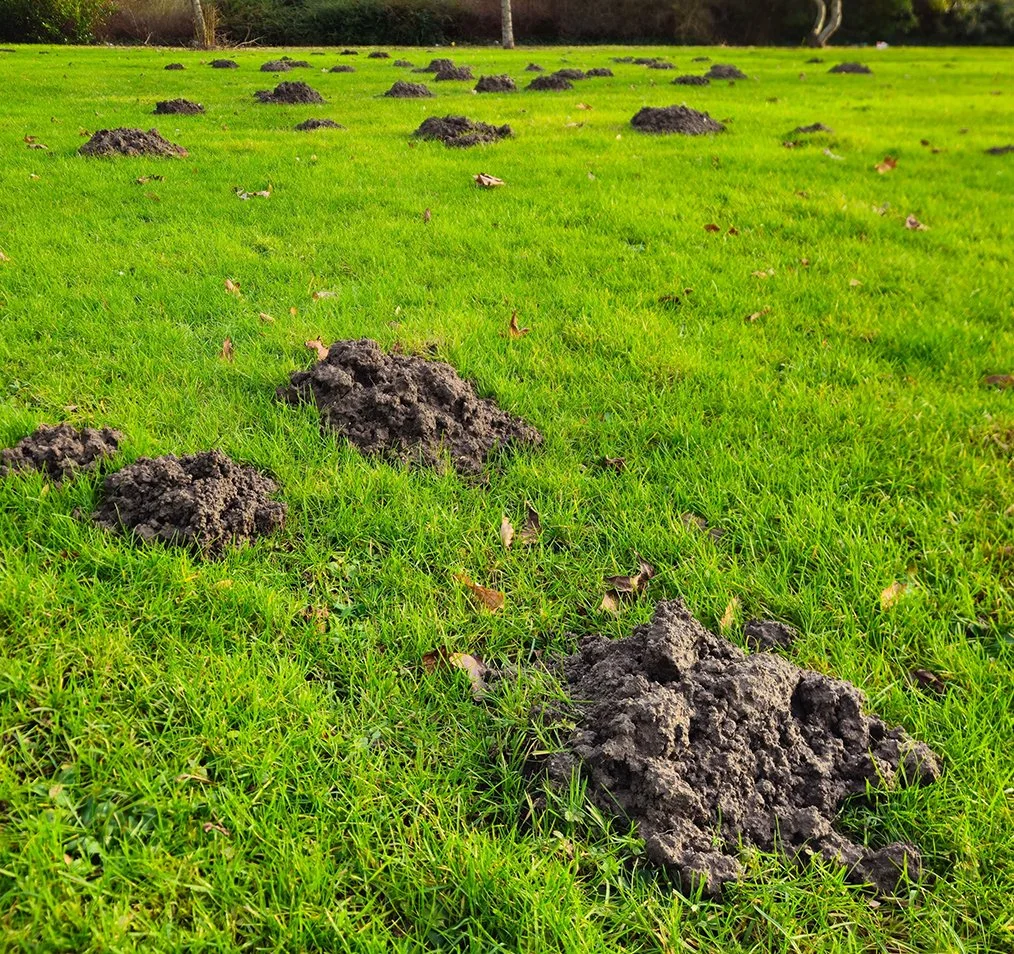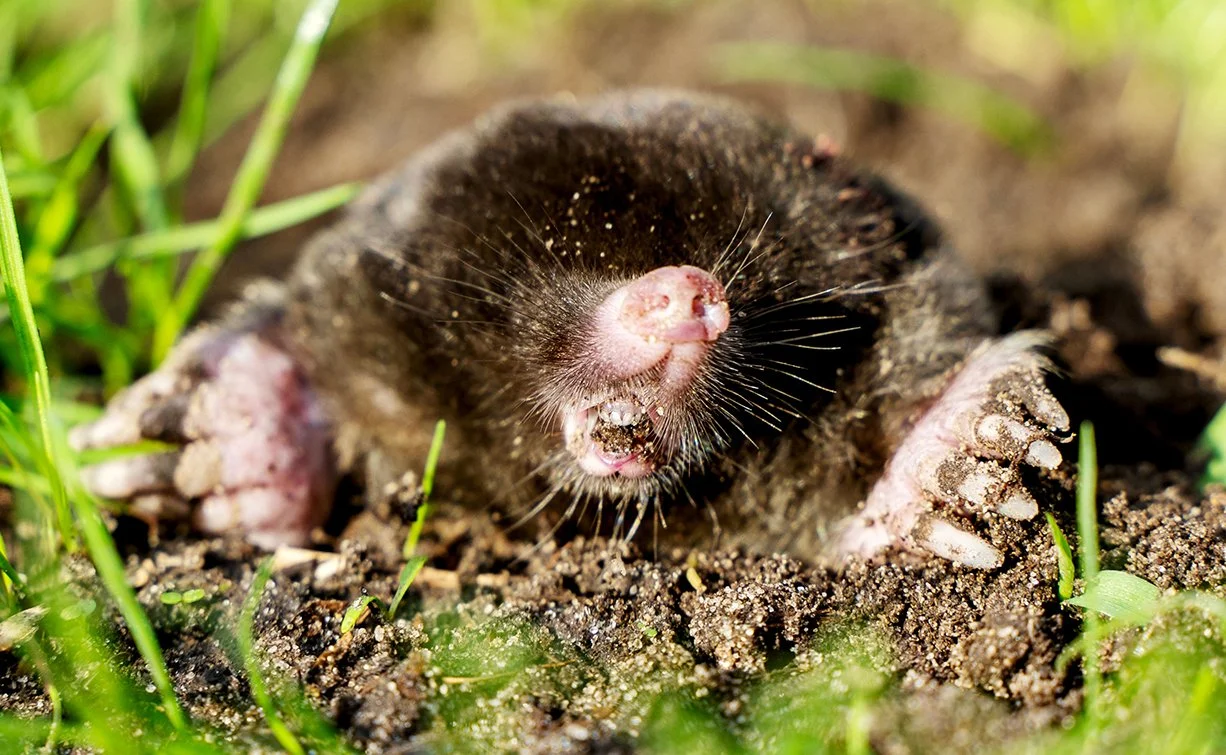Moles
Moles are solitary, insect-eating mammals that spend most of their lives underground, digging extensive tunnel systems in search of food like earthworms, grubs, and insects. Though not directly harmful to humans or pets, their tunneling habits wreak havoc on lawns and gardens by uprooting plants, damaging root systems, and creating unsightly dirt mounds and surface ridges.
Unlike gophers, they are carnivorous and are actually beneficial in small numbers due to their pest control. However, when they become overactive or disturb important landscaped areas, control becomes necessary. Moles are most active in the cooler, moist seasons of spring and winter. Because of their subterranean lifestyle and solitary behavior, removing moles from a property often requires a professional approach using traps and baits tailored to their unique biology and habits.


Burrowing Behavior
Ground squirrels are proficient diggers, creating extensive burrow systems that serve multiple purposes. California ground squirrels often live in colonies, with individual burrows in close proximity.
-
Entrances typically measure about 4 inches in diameter.
Burrows can extend several feet underground, with multiple chambers for nesting, food storage, and refuge.
Burrows provide shelter from extreme temperatures and predators, and are used year-round, including for hibernation or periods of inactivity.
Range & Habitat
Ground squirrels are widespread across North America, with various species adapted to diverse environments. In Southern California, the California ground squirrel (Otospermophilus beecheyi) is prevalent.
-
Open grasslands, pastures, and lightly wooded areas.
Often inhabit areas with loose, well-drained soils suitable for burrowing.
Urban Adaptability: Commonly seen in parks, golf courses, and agricultural lands, showcasing their adaptability to human-altered landscapes.
Landscape Impact
While ground squirrels play roles in ecosystem functioning, their activities can have significant impacts on human-managed landscapes.
-
Burrowing can undermine foundations, irrigation systems, and leading to structural damage.
Feeding habits may damage crops, ornamental plants, and young trees.
Burrow openings can pose tripping hazards for humans and animals.
Diet
Ground squirrels are primarily herbivorous but exhibit dietary flexibility based on availability.
-
Seeds, nuts, fruits, and green vegetation constitute the bulk of their intake.
Occasionally consume insects and other invertebrates.
Documented instances of California ground squirrels preying on voles, indicating carnivorous behavior under certain conditions.


